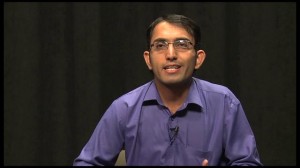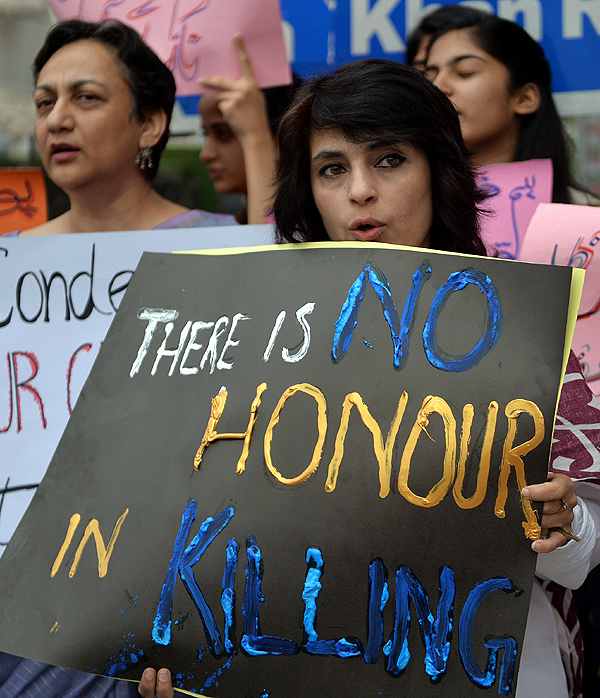Only political settlement can resolve Balochistan conflict; says Malik Siraj Akbar (Part Two)
Saturday, November 3rd, 2012 3:49:43 by Faisal Farooq
Malik Siraj Akbar sees a very bleak future for Balochistan and its people unless the Establishment allows a political settlement of the conflict.
The US-based Malik Siraj Akbar, who is an ambitious young Pakistani journalist, has been actively highlighting the issue of Balochistan across the globe.
He is a Contributing Writer at the Huffington Post and a former Reagan-Fascell Democracy Fellow at the National Endowment for Democracy in Washington D.C.
He is the founder and the editor of The Baloch Hal, Balochistan’s first online English language newspaper. His newspaper was banned in Pakistan because of its fiercely objective and critical editorial policy.
He also wrote a book The Redefined Dimensions of Baloch Nationalist Movement which was released in the US in 2011.
He spoke exclusively to Newspakistan.pk about the current situation in Balochistan and his words offer a critical look into a crisis in great need of broader coverage. Here is the last part of his detailed interview.
Do you see the possibilities of Baloch political parties contesting the next general elections?
The National Party, which boycotted the previous elections, will contest the next elections. The Balochistan National Party also seems to be interested in participating in the elections although it has not officially publicized its plans.
Can any leader bridge the gap between the warring parties?
Nawab Khair Baksh Marri is the ideological father of the current nationalist movement. Only he has the power to influence the insurgents to give up arms.
What are the interests of China, India and the US in Balochistan?
Besides China, which constructed a port in Gwadar, we have not seen signs of Indian and American presence or interest in Balochistan.
The Balochs are staunchly opposed to the Chinese presence in their province where armed groups have carried out a number of stacks on the Chinese engineers working on various projects in Balochistan.
In addition, there is Saudi and Iranian interest in Balochistan where they want to fight their Sunni versus Shia proxy battle.
Does the Supreme Court’s recent verdict on Balochistan’s government have any political significance?
What the Supreme Court said in its judgement about the Balochistan government —it has failed to play its constitutional obligation—was already known to the people and the media.
So, that was not a significant pronouncement nor was it a big deal to reaffirm that the security forces were responsible for committing human rights abuses in the province.
What counts at the end of the day is what the SC can do to end all these practices and bring back the missing persons and end the political role of intelligence agencies.
Will SC’s intervention in the province really help resolve the issue?
The Supreme Court intervention is unlikely to yield any positive results given the fact that the intelligence agencies and the representatives of the security forces were either unwilling to cooperate with the court in the first place or unwilling to accept the charges leveled against them.
This is mainly because of the culture of impunity that has developed over so many years in Pakistan where our security forces blatantly carry out rights abuses and easily get away with it.
In the case of the Supreme Court ruling, we also see that the security forces and the intelligence agencies have very smartly skipped their share of the blame and all criticism seems to be directed at Chief Minister Raisani and his government.
Until the personnel from security forces, who are blamed for carrying out rights violations, are brought to justice, the Supreme Court intervention will not make much sense to Balochistan.
Why did the government ban local media in the province?
The government is unhappy with the media on two accounts. It does not want the media to cover the activities and operations of the Baloch insurgent groups as they regularly make telephone calls to the media organizations to accept responsibility for attacks they carry out against the government.
The government believes the coverage of these groups amounts to glorifying violence and demoralizing the security forces whereas the media insists that people have a right to know what is happening in their surroundings, who is doing and what has caused such break-down of law and order.
Secondly, the Balochistan High Court has also warned to imprison newspaper editors for at least six months if they publish the statements of the Lashkar-e-Jhangvi.
Once again, the government justifies the ban saying that it amounts to depicting the Lashkar as a heroic force.
Our argument, as the media, is that if the government fails to protect the people’s lives then our readers and viewers at least have a right to know who is behind these killings and that they want to achieve by carrying out such attacks.
I do not think there is any element of glorifying violence in the media coverage of the armed groups. After all, they are a reality of the society and we have to cover them as a part of our job.
Is there any division between Brohi and Bloch tribes?
No. There are no apparent divisions between the Baloch and Brohi tribes. The separatist movement comprises of people from tribes that speak both the languages.
What is the role of local media organizations in the current situation of the province?
The local media works under extraordinary circumstance. It multitasks in a situation when the mainstream Pakistani media does not sufficiently cover Balochistan. So, there is a lot of dependence on the local media to highlight people’s issues.
In the recent years, journalists have come under remarkable pressure and physical threats. At least 22 local journalists have been killed in Balochistan since in 2009 and these figures are increasing day by day. So, the media directly faces the heat of the conflict.
Lastly, what is the future of the province?
If the federal government and the military establishment continue to run Balochistan on ad hocism and through a policy of divide and rule, I see a very bleak future for the province and its people.
Such policies can convert Balochistan into a deadly battle field where a civil war can erupt which will entail pro-establishment Baloch tribes versus anti-establishment Baloch tribes, Balochs versus Punjabis, Balochs versus Pashtuns, Shias versus Sunnis, moderate Muslims versus Talibanized Muslims.
In addition, lack of human development and economic opportunities is making Balochistan a very frustrated society.
The educated Balochs are far more anti-Pakistan than their elders. They see no hope in the country. The challenge ahead is how Islamabad chooses to address this myriad challenge.
Tags: Afghanistan, Akhtar Mengal, Balochistan, BNP, journalist, LeJ, Malik Siraj Akbar, Nawab Akbar Bugti, Pakistan, Quetta, Supreme Court, United States, USShort URL: https://www.newspakistan.pk/?p=34648


















We pray that our voice should be carry out by such authuntic and justice nationally and internationally and pray for their long life,,Allah bless u and ur feelings regarding to the baloch and balochistan.\
Great stuff. Very informative. Please continue your coverage of Balochistan.
we thanks the news pakistan to give the burning issue of Balochistan. We (Baloch are suffering every minute. we appeal UN to Land his crops and controll the on going operation in Occupied territory.